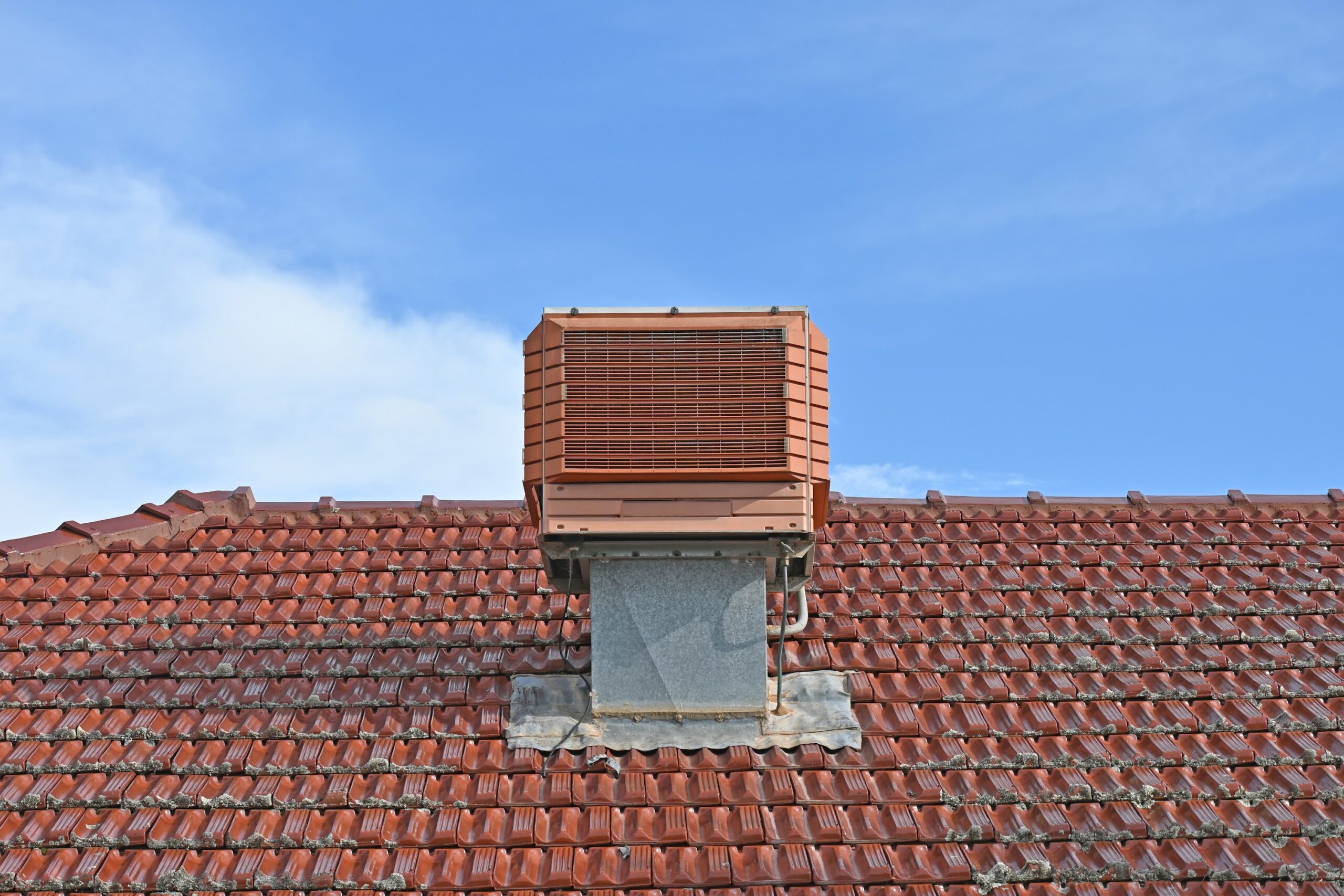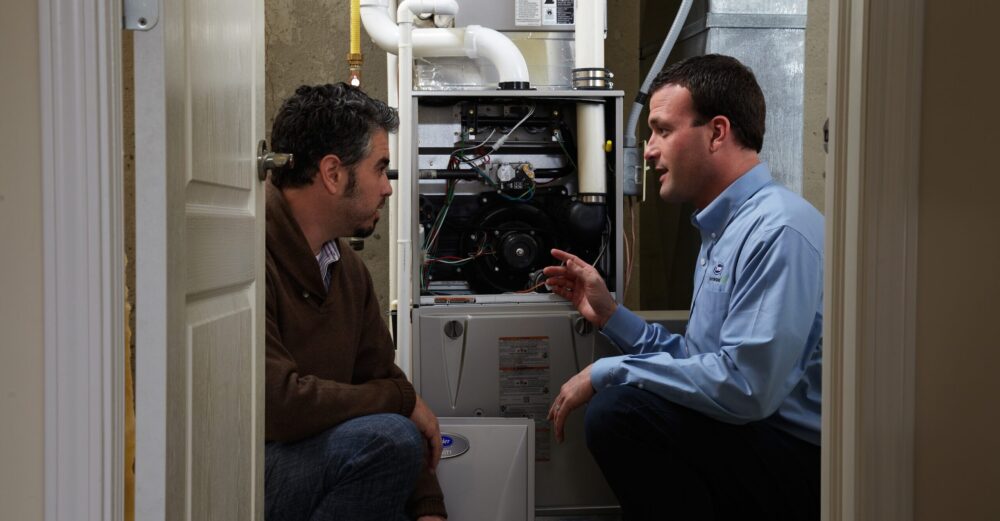If you’re a homeowner or facility manager in the sun-soaked state of Arizona, you know the importance of a fully-functioning, efficient HVAC system. Keeping cool when the mercury soars is not just a matter of comfort, it’s about survival. And for the savvy, it’s also about energy efficiency. But how, you ask, does HVAC maintenance contribute to this coveted efficiency? Let’s dive in.

Regular Maintenance Equals Energy Savings
Energy efficiency, two words that can make a big difference in your monthly bills and, more importantly, the comfort of your home or facility. By keeping your HVAC system in top shape, you can ensure that it’s not working harder than it needs to, thereby saving energy (and money).
Here’s how it works: a well-maintained system doesn’t have to work as hard to heat or cool your space, which means it uses less energy to achieve the desired temperature. It’s akin to having a well-tuned car. You get better gas mileage from a car that’s regularly serviced, right? The same principle applies to your HVAC system.
The Domino Effect of Deferred Maintenance
Let’s paint a picture. You’ve been putting off that HVAC system check-up, and now, in the middle of an Arizona summer, your system is struggling. It’s working overtime, consuming more energy, and still, your space isn’t as cool as it should be.
That’s the domino effect of deferred maintenance. It starts with small issues, like a slightly dirty filter or a minor refrigerant leak, that escalate over time. Eventually, these minor problems can lead to a significant decrease in the system’s efficiency and an increase in energy consumption. Not to mention, it can shorten the lifespan of your system.
Elements of an Efficiently Maintained HVAC System
Let’s get into the nitty-gritty of HVAC maintenance that can contribute to energy efficiency:
- Filter Maintenance: A dirty filter can block airflow, forcing your system to work harder to circulate air. Regularly replacing or cleaning your filters can improve the efficiency of your system.
- Coil Cleaning: The coils in your HVAC system are crucial for heat exchange. When they get dirty, the system’s efficiency can decrease significantly. Regular coil cleaning can keep your system running smoothly.
- Checking for Leaks: A minor refrigerant leak today could turn into a major efficiency problem tomorrow. Regular maintenance checks can identify and fix these issues before they escalate.
- System Optimization: Regular tune-ups can ensure that all parts of your HVAC system are working together optimally. This not only improves efficiency but also extends the system’s lifespan.
Smart and Sustainable Choices
Energy efficiency is not just about immediate cost savings, it’s also about sustainability. By ensuring your HVAC system is efficient, you’re contributing to a healthier, greener planet. And in today’s world, that’s something to be proud of.
In the grand scheme of things, HVAC maintenance is a small price to pay for the comfort of your occupants, the longevity of your system, and the health of our planet.
The True Cost of Inefficient HVAC Systems
We’ve talked about the domino effect of deferred maintenance. Still, it’s crucial to understand the real costs that come with an inefficient HVAC system. It’s not just about higher energy bills, though that’s certainly a significant factor. When your HVAC system is inefficient, it can lead to a host of other issues:
- Increased Repair Costs: An inefficient HVAC system can lead to more frequent breakdowns, meaning you could be footing the bill for pricey repairs more often.
- Shortened System Lifespan: HVAC systems are a big investment. If your system is running inefficiently due to lack of maintenance, it could significantly shorten its lifespan, meaning you’ll be replacing it sooner than you’d like.
- Reduced Comfort: Let’s not forget why we have HVAC systems in the first place. An inefficient system may struggle to maintain the desired temperature, leading to less comfortable living or working spaces.
- Higher Carbon Footprint: If sustainability is a concern for you, it’s important to note that inefficient HVAC systems contribute to higher carbon emissions.
The Science Behind Energy Efficiency
Energy efficiency might seem like a modern buzzword, but it’s actually a concept rooted in basic physics, specifically, the laws of thermodynamics. These laws dictate that some energy is always lost to waste heat in any energy conversion process, including in your HVAC system.
That’s where HVAC maintenance comes in. Regular maintenance ensures that your HVAC system is operating as close as possible to its optimal efficiency, minimizing energy losses and reducing waste. This means that your system is doing its best to obey the laws of thermodynamics, which is a pretty cool (or warm, depending on the season) thing to think about!
Advanced Maintenance Techniques for Greater Efficiency
Now, let’s discuss some advanced maintenance techniques that can enhance the efficiency of your HVAC system even further:
- Automated System Monitoring: Modern HVAC systems often come with automated monitoring capabilities. These systems can provide real-time diagnostics, helping you catch minor issues before they become major problems.
- Predictive Maintenance: This involves using data from your HVAC system to predict when maintenance will be needed, rather than sticking to a strict schedule or waiting for something to go wrong.
- Zoning Systems: Zoning systems allow you to control the temperature in different areas of your building separately. This means you can use energy more efficiently by heating or cooling only the areas that need it.
- Programmable Thermostats: If you’re still using a manual thermostat, upgrading to a programmable one can make a big difference in your energy efficiency. These thermostats can automatically adjust the temperature based on your schedule, ensuring that you’re not wasting energy when no one is home or during off-peak hours in a business setting.
Looking Ahead: The Future of Energy Efficiency
As technology advances, so do the opportunities for energy efficiency. Many companies are now developing HVAC systems with features like variable speed motors and smart thermostats, which can further improve energy efficiency.
Furthermore, some innovative companies are experimenting with HVAC systems that can recover waste heat and use it for other purposes, like heating water. While these systems are not yet the norm, they represent the future of energy efficiency, and something to keep an eye on!
By staying informed about these developments and understanding the importance of regular HVAC maintenance, you’re well on your way to maximizing your energy efficiency and reaping all the benefits that come with it.
So, whether you’re a homeowner or a facility manager, remember: energy efficiency is a journey, not a destination. There’s always more you can do to improve your HVAC system’s efficiency, reduce your energy use, and contribute to a more sustainable world.
Wrapping It Up
So there you have it, Arizona homeowners and facility managers. Maintaining your HVAC system is one of the best ways to enhance energy efficiency. Not only can regular maintenance help to reduce your energy consumption and save on costs, but it can also improve the comfort of your living or working space, extend the lifespan of your HVAC system, and contribute to a more sustainable planet.
So the next time you’re tempted to put off that maintenance check, remember: an ounce of prevention is worth a pound of cure, and a mountain of energy savings.
Reach out to Morehart AC for energy efficiency services in Arizona.





